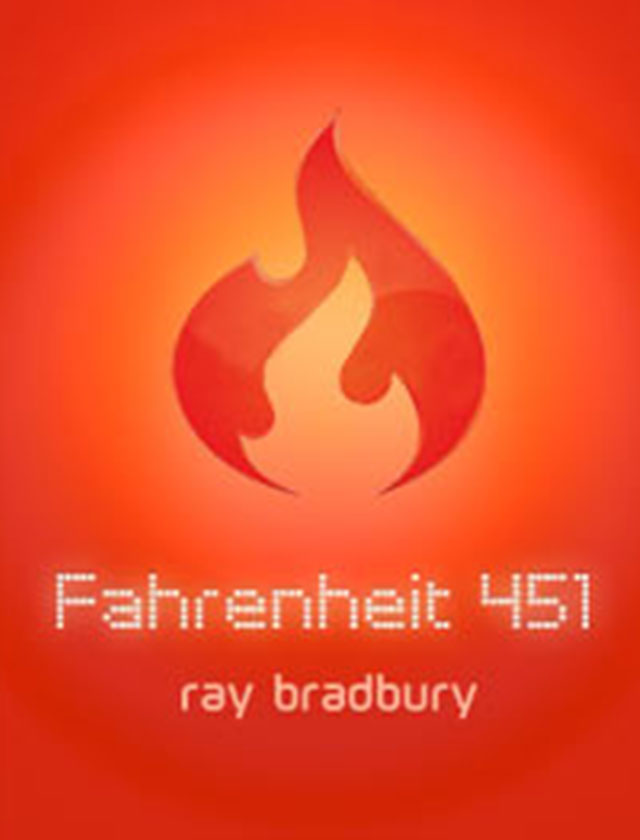Fahrenheit 451
by Ray Bradbury
Fahrenheit 451
Fahrenheit 451 is a story of a dystopia where books, considered threatening to human pleasure, are destroyed. The story, frighteningly true to contemporary life, is not so much one of books and discussion being outlawed for presenting dissenting ideas (as it is commonly thought) as one of dramatizing the threat of television that reduces knowledge to factoids and distracts individuals from significant aspects of life.
There is much about the book that is prophetic of today. The Seashell, for example, is reminiscent of the iPod. Television has become far larger than it was in Bradbury's time, at times encompassing the three or four walls mentioned in Fahrenheit 451. Increasingly more work positions have become sinecures, with robots taking the place of humans, while the lives of people, as a whole, have become cheaper and that of machines more expensive. Indeed, Montag's observation watching the impersonal physicians ministering to Mildred sounds all too familiar:
There are too many of us, he thought. There are billions of us, and that's too many. Nobody knows anyone. Strangers come and violate you. Strangers come and cut your heart out. Strangers come and take your blood (p.16).
Technology and entertainment, the only two subjects allowed in Montag's society, have achieved an overly significant niche in our own time. Meanwhile, such subjects as the arts and philosophy have, at least in North America, been granted secondary space. The term "minorities" has expanded into a spectrum of splinter groups and sensitivity to their needs. Life is becoming increasingly faster-paced, and with that, the need for thinking (particularly with the advent of the Internet) has shrunk. Beetles, super-fast vehicles, are a fixture of our times, as is human cruelty—though perhaps not to the extent dramatized in Fahrenheit 451. Finally, although not conclusively, war is as much a component of modern times as it was then.
Fahrenheit 451 is based on a previous short story...
Sign up to continue reading Fahrenheit 451 >